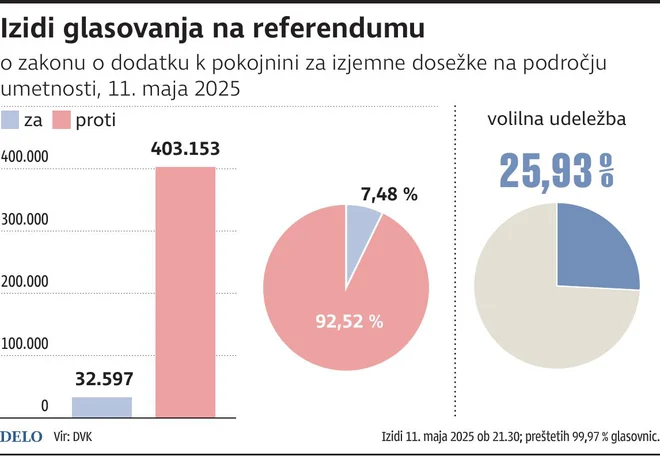Business expects what deposit system the state will offer for packaging

Already 17 countries in the EU have introduced deposit systems, this year, what to do with Poland and Greece. Romania has been applying the system for a year and a half and has been able to collect 80% of packaging waste.
Bulgaria has not even accepted the legislation yet, which determines how the system will work, but a commitment to everyone. As of EU countries, as of January 1, 2029, to collect over 90% of plastic and metal packaging for recycling.
What’s ahead
As in many spheres in the packaging waste management, the business is active, unlike the state. Political uncertainty in recent years has not helped to move the legislation and the introduction of the so -called. Deposit system. It closes the circle between production and waste. According to European legislation, by 2029, any country that collects less than 80% of the packaging – plastic and metal, must introduce a system that provides over 90% collection. In addition, this year, manufacturers must use 25% recyclable in packaging.
And a beer manufacturer joins the « Lidl » bottle model
For 2 years, the Lidl Bulgaria and Kaufland retail chains have introduced machines for the transmission of prastma and metal packaging in some of their sites, the Union of Brewers in Bulgaria also has initiatives aimed at collecting beer packaging to be processed and reused.
At that time, the state has not yet introduced legislation to determine what type of deposit system will have, who will manage it and how it will function. At the discussions on the topic in Sofia, representatives of the Romanian deposit system shared the experience of the country, which has already had such a functioning system for 1.5 years. It was expected to participate in the Environment Minister Manol Genov, but his Romanian counterpart Mirce Fechet was involved.

The deposit system must cover any settlement, no matter how depopulated it is – this will be accessible to all citizens and will create conditions for high packaging collection, commented the chairman of the Association of soft drinks in Bulgaria, Zhanna Velichkova.

He pointed out that the European Regulation covers disposable packaging with a size of 100 ml to 3 liters, but according to it, the system should also be included in the glass. Against the return of the packaging, the user receives a certain amount, which was included in the final price he paid when buying the product. For the time being, this amount is being discussed to be 20 cm.
The amount must be determined in this way is to encourage consumers to return the packaging, but not to increase the products excessively. Therefore, the price of the package deposit is good to indicate separately from that of the product. And also to be released from VAT, insofar as the purpose of the entire deposit system is to have balanced finances – the revenue to cover the expenses rather than to form a profit from the activity.
The principle of operation of deposit systems in individual countries varies depending on which model is working for the country concerned. The deposit system must be managed by one operator and the financial model should be transparent, Velichkova said.
It must have an operator – state or independent to manage the whole system and coordinate the participants in it – the producers of the beverage – they are the first to charge deposits, retailers and other sales points that transfer the deposit along the chain and participate directly in contact with the end user who is expected to return the rezing packages.
Romania is already collecting 80% of the packaging
« People write to me and send photos that there have been dumped packaging in nature before, and now it’s history, » said Romania Environment Minister. He pointed out that the introduction of the system was the first task with which he took the post and had great concerns, because the question was also postponed several times. « But now we can say that this is the best decision for the circular economy that Romania has made after the changes, » he said. He pointed out that the state in this case has two important tasks – it has a 20% shareholder in the operator, and the more important thing is to be a regulator of the deposit system so that it protects the interests of all parties in it.
He pointed out that there are 7 billion containers in the country for 30 million population in the country, but there are still remote places where the operator has no local partners.
However, local producers no longer need to bring recyclable because the raw material is provided by the local market.
According to the Romanian operator of the system for at least 24 months, it is necessary to adapt everything in the deposit system in order to start working. And this period is, given that there is good preparation before.
Initially, Romania began to collect half of the packages manually and the others through machines, now 90% of the collection is done through vending machines.
Better the state not to interfere
The Ministry of Environment for 3 years is gathering a working group, which discusses the future deposit system. The little information is known that there is no agreement on many issues relating to it. The discussion is now over in April and the ministry is expected to propose the regulatory framework. That is why the Bulgarian participants in the conference were puzzling the lack of a representative of the ministry.
Deposit this – where did Bulgaria come with the packaging collection system
The state does not cope with the construction of infrastructure and it is better not to interfere with the construction of a deposit system. This was commented by Nikolay Valkanov, chairman of the Association for Modern Trade. Compare the situation with the one with the construction of highways – if they were given to a concession, they would have long been built, and now there is one – « Thrace », which in half a year is not a highway, he added.
This is also one of the main issues that must be legally resolved – who will manage the operator of the system – whether the state will be entirely its leader or a shareholder.
Valkanov noted that the introduction of the deposit system will be a major challenge for retailers, who will be charged with unacceptable activity and will have to provide infrastructure for collecting packaging in their territory. From his words, it was learned that the industry has a serious concern about the logistics of the packaging, so that they are not literally buried by them.
His assessment is that it is inevitable to provide automatic packaging collection, which is not only a convenience for the client, but also for the traders, given the problem of the lack of staff.









